Details
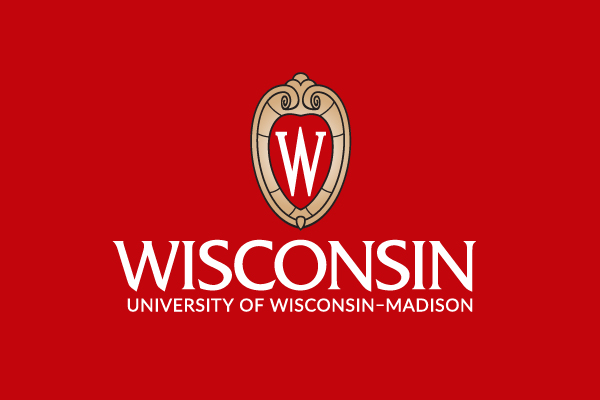
Cumulative GPA 3.98/4.0
Here at UW-Madison, we don't have A+. A is the highest grade you can get.

MATH 375
This is one of my favorite math courses taken at UW-Madison. Professor Caglar Uyanik explains concepts really well, he also did tons of preparation for the class. Everything feels natural guided by his teaching. Most of the concepts are rigorous, which is amazing considering this is an intro course. The homework are fun and challenging. It is 5 credit course, so workload is heavier than normal 3 credits courses. Exams are easier than the homework. I got 100% on the First midterm and the Final, and 71/75 in the second midterm.

CS 300
This is the first formal CS courses I've taken. We use java as programming language. The concepts are all pretty simple. If you are not into a CS major, I would recommend you to take CS 320 which use python and covered more data structure and concepts. I had Hobbes LeGault as my instructor. She is energetic and listening to her class is fun. Her office hour is also super helpful, there are tons of students everytime. Most of the questions in the exam are covered in class, pay attention to the class and you will get a good grade. I got 92.5 on the first midterm, 100 on both the second midterm and the final.
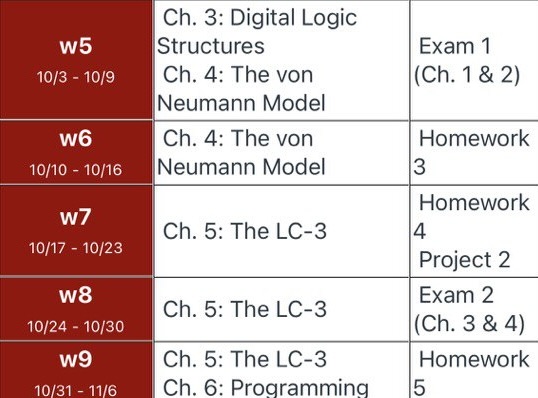
CS 252
This is course covered the fundamentals of how naive computer works. You will learn things from the logic structures to cpu and memory. Theoretically, one will be able to build a LC-3 tutor/simulator in Minecraft after taking this course. Homeworks has a few questions, but counts towards a huge amount of grade, so pay attention to each homework. There are extra credits at the end, so getting an A shouldn't be hard. At the end of the course, Professor Skrentny gave us a speech which can really light up one's interest in computer engineering. This is the course that make things that feels like magic not magical any more.

ECON 101
Most of the time in this course, you will need to deal with demand and supply curves. Personally, I think this course is pretty easy. All you need to do is fully understand the basic concepts and you are good to go. The discussion session will offer you plenty of practice. There is little homework assigned. I recommend to take this 4-credits course for your social science requirement, and this course will also offer you lots of useful knowledge.

ENVIR 205
This is a course that I took for my Biology credits requirement. It is in fact an online course. From time to time, there will be professors or researchers invited to give us a talk on Monday. The course is pretty chill, no exam and homework is also not heavy. I think this course should be an ethnic course too, because it is super similar to LIS 202 that I took in the later semester.

MATH 376
Math375 and 376 are the honor intro series. Whoever is interested in math should take Math375&Math376. These two courses are concretely proof based, and covers more materials than the normal substitute. We covered topology and measure theory to introduce concepts and definition. I am super glad that I took this honor series. Professor Caglar Uyanik lectured as excellent as usual. I got full marks on both the first midterm and the final.

CS 400
This is another java based programming courses. In this courses, we introduced more data structure, and algorithms. For example, hashtable, red black tree, and Dijkstra's Algorithm. The course also cover some basic knowledge of bash command, git and some javascript. Overall a useful course, projects are all group projects. You will need to design and finish a project using the datas structure or algorithm covered in class with a group of four.

CS 368
I don't recommend you take this course before CS 354 unless you have prior knowledge of C/C++. Since most of the classmates took CS 354 before this class, my instructor assume that we know things related to C, but I don't at all. Segmentation fault is annoying, it is overall a frastruating experience if you don't know anything realted to C or C++ before. The course is similar to CS 300, except you only got one course every week, and more projects, and C++ is harder than java.

MATH 475
Intro to combo, this one should be one of the most interesting math coure you can take in college. It is really similar to simple math contest problems. I had Professor David Keating as my instructor. Professor Keating is really friendly and talented, and he teaches really well, and has tons interaction with students. I always sit in the first row, and answer as many questions as I can. I consider taking his class as entertainment, because combo is fun and he also teach it great.
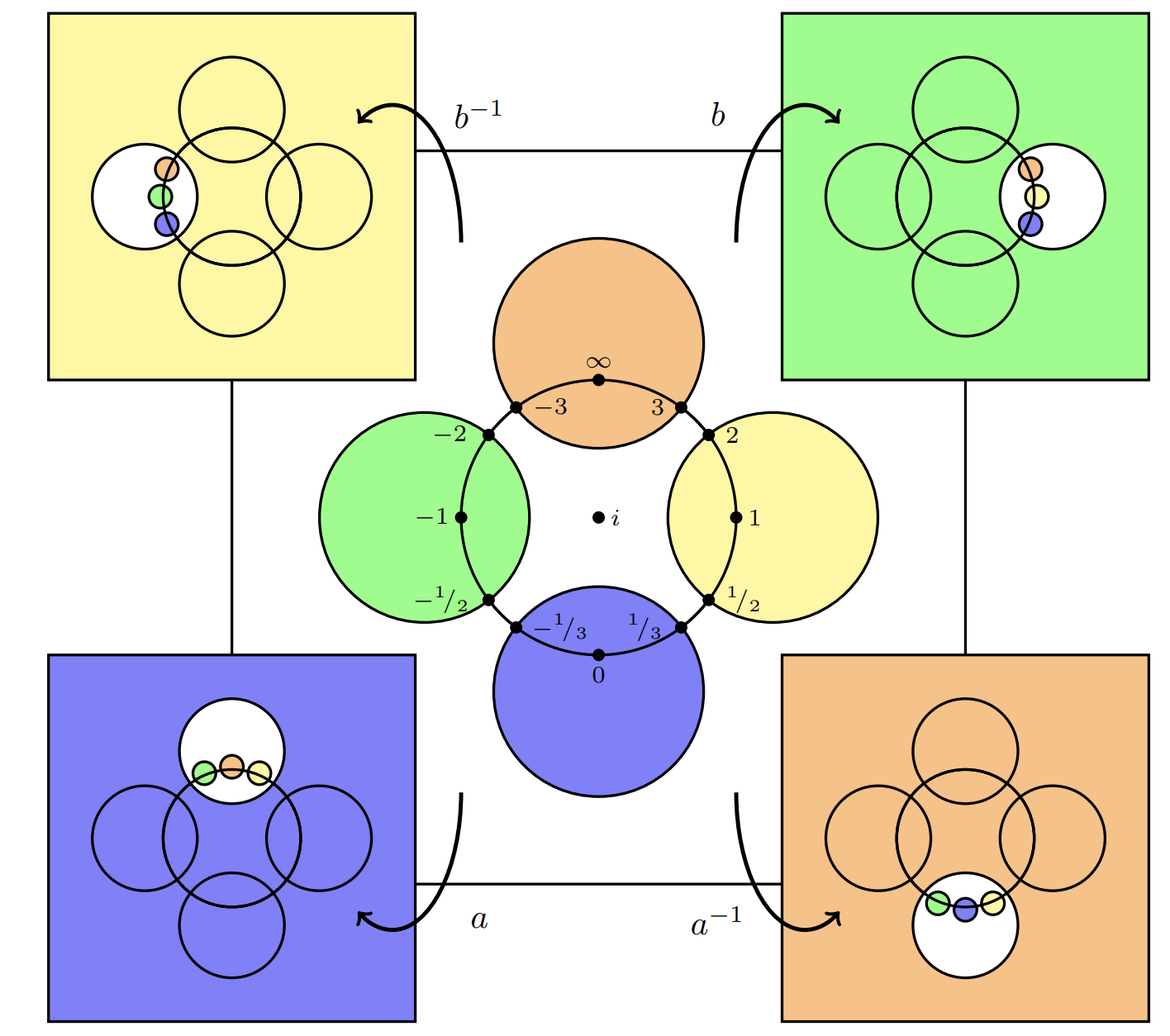
MATH 490
Madison Experimental Mathematics Lab (MXM), We researched on given
two random elements of SL2(Z), what is the probability that they
generate a free group. Advised by Professor
Caglar Uyanik
. I get to know what math research is like
(There are always pizza at every group meeting). I am
exposed with lots of new math knowldege, mostly about group
theory. We also did experiment with python, where I learned that
CS can also greatly help mathematical research. Overall, a really
interesting experience.

LIS 202
Library Information Study. This is an ethnic course, and also satisfy social science or humanity credits. The course is about equality, digital divides, and writing newspaper analysis. It is required to write about 900 words paper, and you are required to write analytical paper instead of your own opinion. This course is not fun compared to math and CS, but I need it for ethnic study. I immediately changed my wifi router after learning that my bandwidth is well below average from this course.
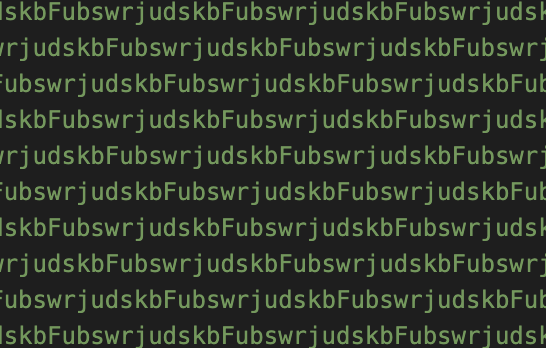
MATH 435
Cryptography, I took this course during summer. we learned some basic encryption methods, and a little number theory. The course is pretty chill during summer. However, when I was the grader for this course during fall, the homeworks are more involved and more proof knowledge is needed. We are using the course notes from Professor Eric Bach. The course notes are very detailed, and there are lots of knowledge that you can't find from the Internet listed in the book.

CS 354
This course is use CSAPP as a main text book. You are required to use C to write projects. Having previous knowledge about C++, the projects are not really difficult. This course also helps to prepare for CS 537 Operating System. We had Phd student Buji as our instructor. He graduated from CMU as undergraduate. He puts tons of efforts and try to deliver the best studying experience to us with limited resources. I recommend taking Math and CS courses in normal semester, because they will cover more materials.

MATH 521
Intro to Analysis. Our instructor is Professor Jordan Ellenberg. Fun fact, I wrote about Professor Ellenberg in my "why school" essay. He has two IMO glod medals, Putnam No.5, New York Times best seller... We used Rudin's book and Leslie's course notes, but mainly the later one. Homeworks are interesting and inspiring. Professor Ellenberg introduce us to the application of analysis in ML, and lots of beyond scope knowledge, which is great. I got 100% on midterm and the final. He intentionally make the exam not difficult. All the homework question are made by him, and you can see how knowledgeable he is from the hw. However, I do think he taught the course easier than it supposed to be.

CS 540
Intro to AI. This is one of the most popular upper level courses in UW-Madison. There are 3 section, each with about 100 students. The courses is well-designed and the projects are delibrately made. This is the best designed CS courses I've taken at UW-Madison. I had Professor Fred Sala as my instructor. He has a strong math background, explains things super well and clear. To be honest, I haven't seen any other CS professor teach as well as him. He also takes efforts after class, gives long post on piazza, holds review sessions. Lots of students from other sections come to his section, because he teaches so well. I would recommend anyone to take this course. It is a great intro course to lots of concepts in AI. Our course page is hosted at CS 540 Fall 2022. I heard that this new version is designed by Professor Sharon Li, and the summer session doesn't offer this version. Again this is the best designed CS course I've taken at UW-Madison. I pass the course with 100%, midterm and final are not hard.

CS 532
Matrix methods in ML. This course look at a specific area from CS 540. We introduced gradient decent, neural networks, different regularization methods. The lecture and exams are well-made, but the homework is not closely related to the lecture or the exams. Our instructor is Professor Robert Nowak, he also lecture really well and clear. Lectures and exams are mostly related to math. Professor Nowak is really friendly and fun, I heard that during the pandemic time. He gave lecture with natural landscape as background.

CS 577
This is the most fun CS course, I've takend at UW-Madison. I took the honor section taught by Professor Dieter van Melkebeek. He is a really kind and talented professor. He can always immediately reply the question you ask. Professor Dieter Melkebeek also lead our ICPC team. Under his guide, we are the only school in North America that enter the world final for 11 years. He explains everthing clear, the course itself is also interesting. I extremely recommend you to take his class if you have chance. The exams and homework are challenging, but as long as you pay attention to the class you will be fine. Shame on some of the students that leave bad comments on rate my professor.

MATH 431
This is the intro to probability. Our instructor is Professor Benedek Valkó. Awesome professor, he is the one you should learn probability from. Everything is pretty rigorous, and he is also the author of the Introduction to Probability book. The exams are harder than previous semester. With avergae aroung 70%, I managed to get the highest score in class 99% at the second midterm. I will continue to take MATH 531 with him. You can definitely learn a lot from him, but do get ready for the exam. Even though the exam is harder, it is no harder than homework or problems during lecture.

Bio 101
This is an independent course I took during winter. You are required to do some learning homework with 10 attempts and each question has only 4 choices. It cost about $1200, including the textbook. I feel like it is basically the same with Junior High bio class. You can search Wisconsin Independent study to learn more. It is similar to ap exam, you can transfer the credit for your bio requirement.
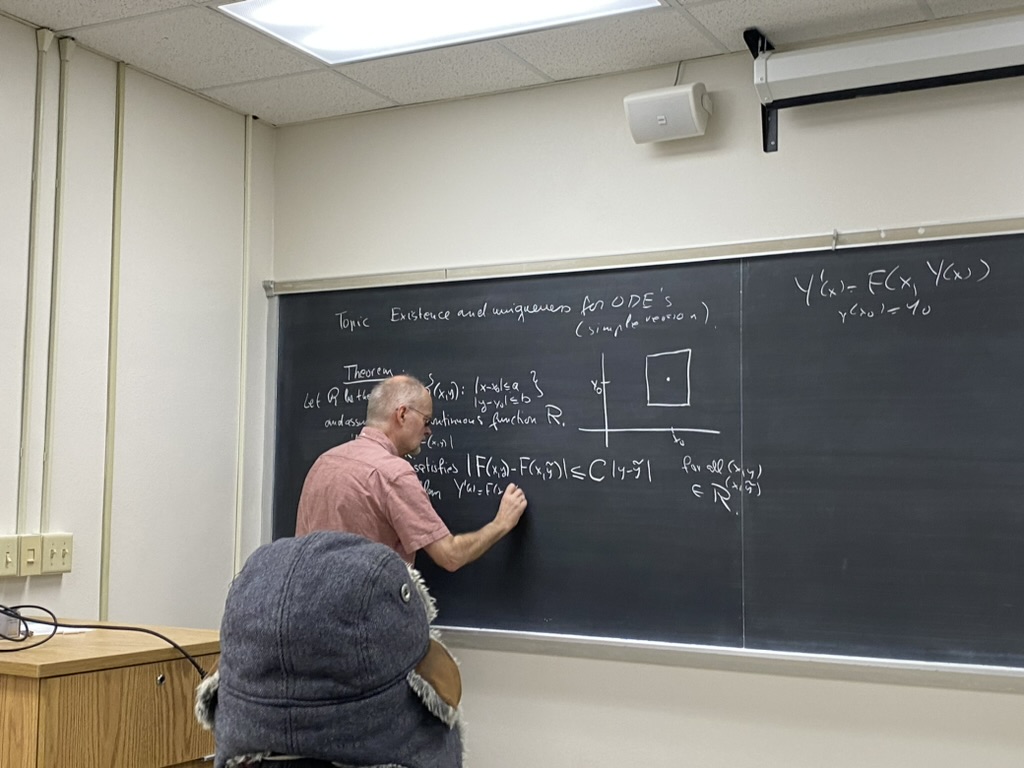
Math 522
Professor Andreas Seeger. He is now my favorite math professor at the school. Very knowledgeable, super friendly. I remember once I read from reddit that He is the one you should learn analysis from. I totally second this. The homework are hard, but exam are fairly easy. Hardest courses I took in UW-Madison. Top analysis professor in the school, he host the analysis seminar. It is his class that remind me how much I love math. 522 is a second course for analysis, basically complete baby rudin after this course. Next semester I will take MATH 721 Real Analysis. Midterm1: 42/50, Midterm2: 58/60, Final 120/130
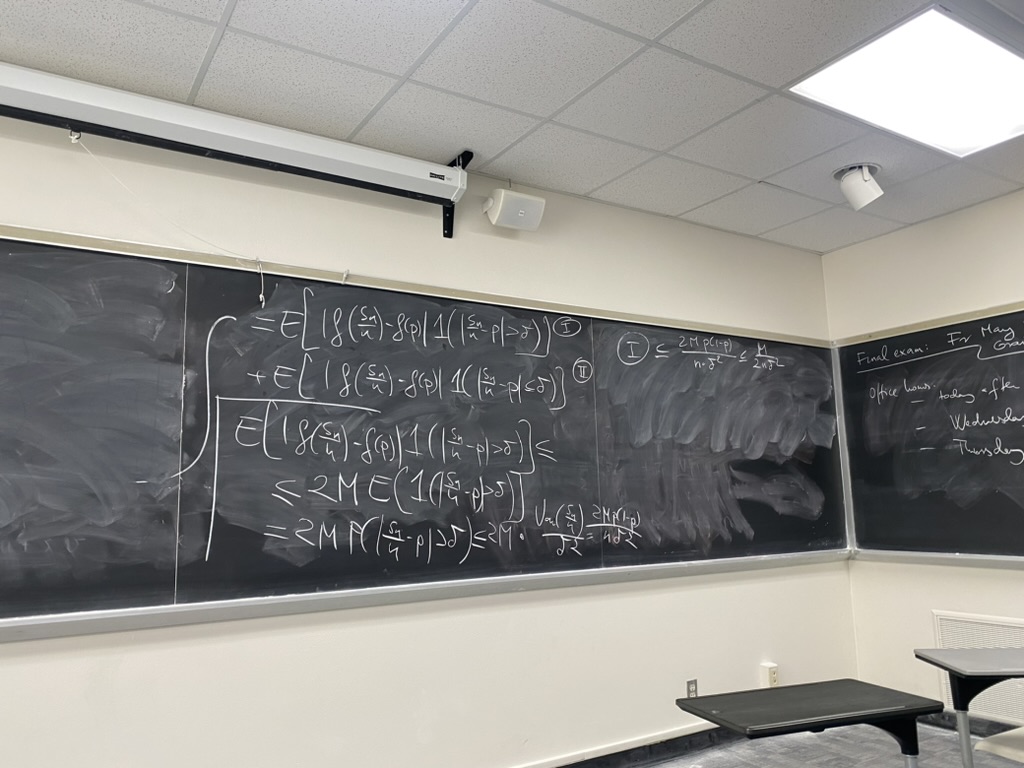
Math 531
This course is an enhanced version of math 431. We introduced lots of great proof(Weak/Strong law of large number, Central limit theorem...) and also introduce different kinds of convergence. Converge in probability, almost surely, and in distribution. Pitty this course is not offered in fall. Professor Valko teaches awesomely as usual. We see a probability proof of Weistress theorem at the end of the class, which we also proved in the analysis class. In this class, I repeatly saw how analysis and probability intertwine with each other, and I grow more interest in both these two topics. Midterm1: 95/90 (Professor Valko change the full score to 90), Midterm2: 97/100, Final UNKNOW.
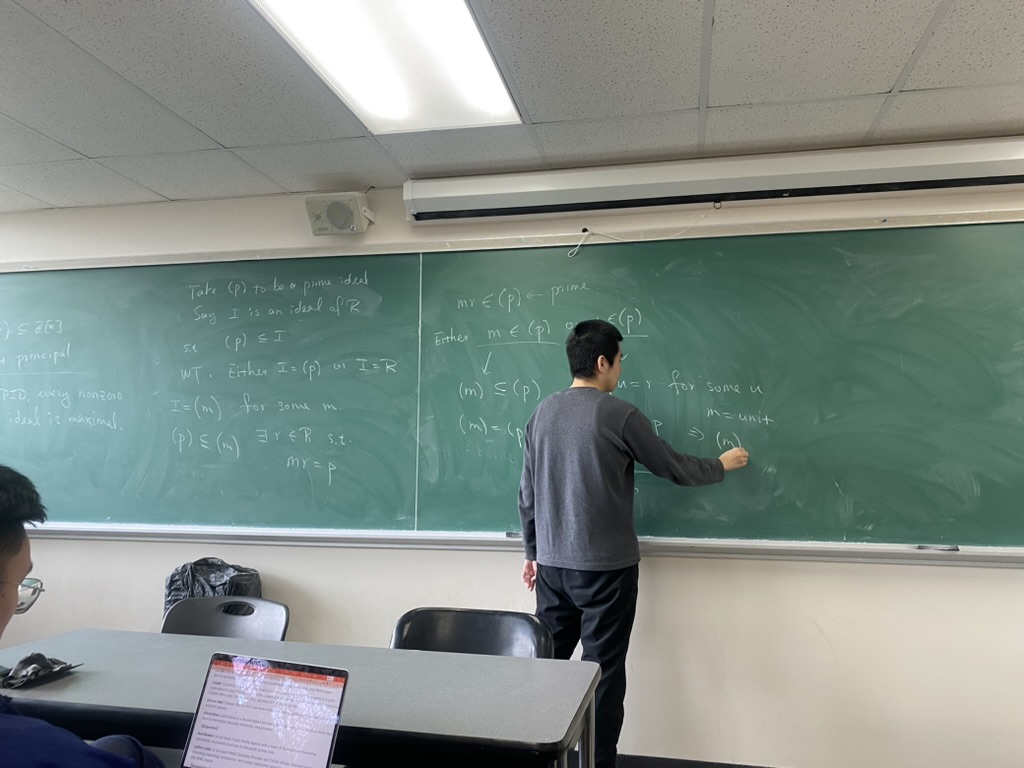
Math 541
My first course in Abstract Algebra. We use dummit and foote as textbook. There are so many definition and names in Algebra. Professor Ziquan Yang is super kind and friendly. He want all of us to succeed in this course. The homeworks are usually worth thinking, but exams are intentionally made easy. Though having a great grade in this course, I am sometimes confused about the main idea of abstract algebra. I should have read more dummit and foote. Midterm1: 54/60, Midterm2: 100%, Midterm3: 100%, Final 100%.

CS 564
Database Management Systems, this is my only CS course this semester. We develop a naive version of DBMS at the end of the course. The assignment are written in python and C++. This isn't my favorite CS course, and I found it more like a memorization course. Basically the course are feeding you knowledge that you should know. The concept are all pretty trivial and not fun at all. The most interesting part of this course to me is about functional dependency and relational algebra, which the course did not go deep into. I got a bad grade on Final, but still managed to get an A.